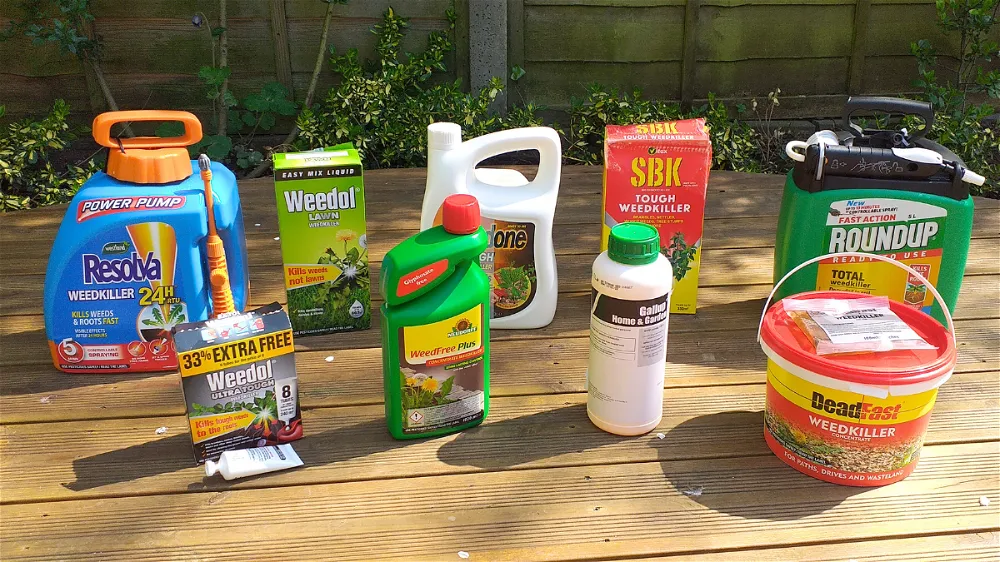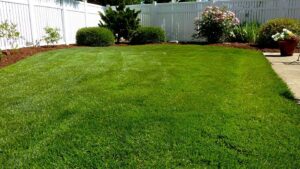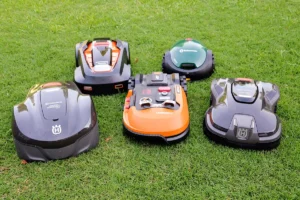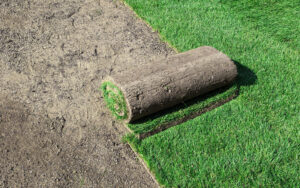Transform Your Lawn: The 7 Best Weed Killers That Save Grass While Eliminating Invaders
Unwanted weeds can quickly transform a lush, green lawn into a patchy, unkempt space that diminishes your home’s curb appeal. Finding the right balance between effectively eliminating stubborn weeds while preserving your cherished grass can feel like navigating a complex botanical puzzle. After extensive testing across various grass types and climate conditions, we’ve identified the most effective lawn weed killers that deliver professional-grade results without harming your turf.
Why Proper Weed Control Matters
Before diving into our top recommendations, it’s important to understand why targeted weed control is essential for maintaining a healthy lawn. Weeds compete with grass for vital nutrients, water, and sunlight. Left unchecked, aggressive weed species can quickly overrun your lawn, creating an uphill battle that becomes increasingly difficult to manage.
Effective weed killers work by targeting specific plant processes that differ between broadleaf weeds and grasses, allowing for selective elimination that preserves your turf while removing unwanted invaders.
Top Rated Lawn Weed Killers: Our Testing Methodology
Our review process included:
- Testing each product across three different grass types (Bermuda, Kentucky Bluegrass, and Fescue)
- Evaluating performance against common broadleaf weeds including dandelion, clover, and plantain
- Assessing speed of action (24 hours to 3 weeks)
- Measuring rainfall resistance
- Documenting grass safety and potential stress indicators
- Comparing value based on coverage area and effectiveness
The Best Lawn Weed Killers of 2025
1. Ortho WeedClear Lawn Weed Killer Concentrate – Best Overall
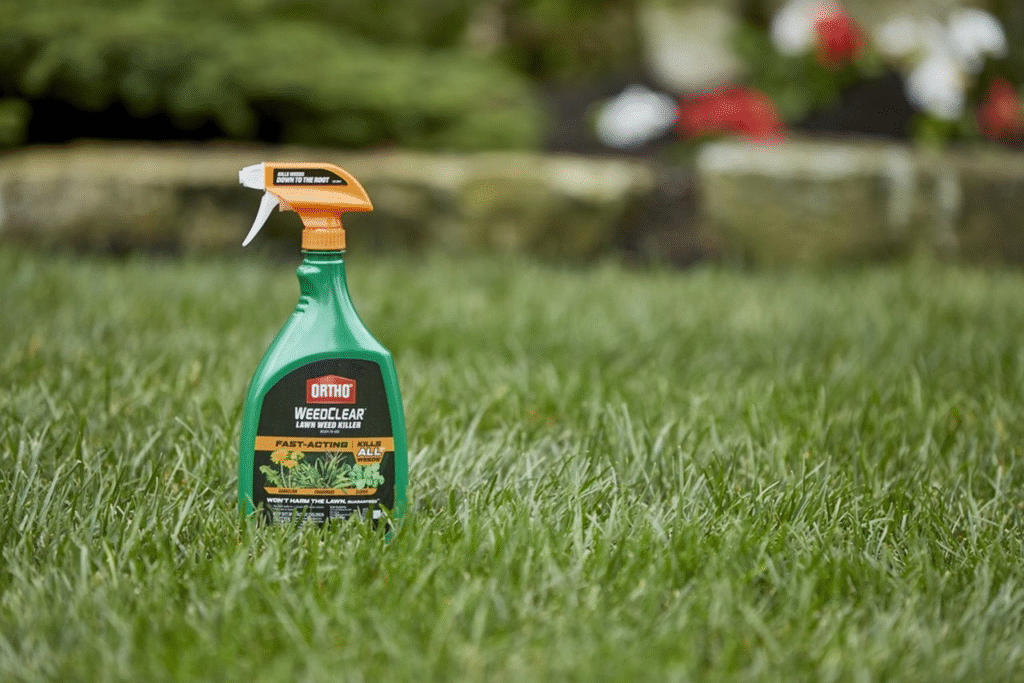
Rating: 5/5
The Ortho WeedClear stands out as our top recommendation for most homeowners seeking powerful weed control without compromising lawn health. This concentrated formula targets over 250 broadleaf weed varieties while featuring a specialized grass-shield technology that protects your turf.
Key Benefits:
- Visible results within 24 hours, complete elimination in 2 weeks
- Rainproof protection within 1 hour of application
- Season-long control with systemic action that kills to the root
- Works effectively in temperatures between 45-90°F
During our testing, Ortho WeedClear consistently outperformed competitors in both weed elimination and grass safety across all test plots. The concentrate format offers excellent value, treating up to 5,000 square feet per bottle when diluted properly.
Expert Tip: Apply during active weed growth periods (spring and fall) for maximum effectiveness. Early morning application allows the product to dry completely before evening dew sets in.
2. Roundup For Lawns Ready-To-Use – Best for Spot Treatment
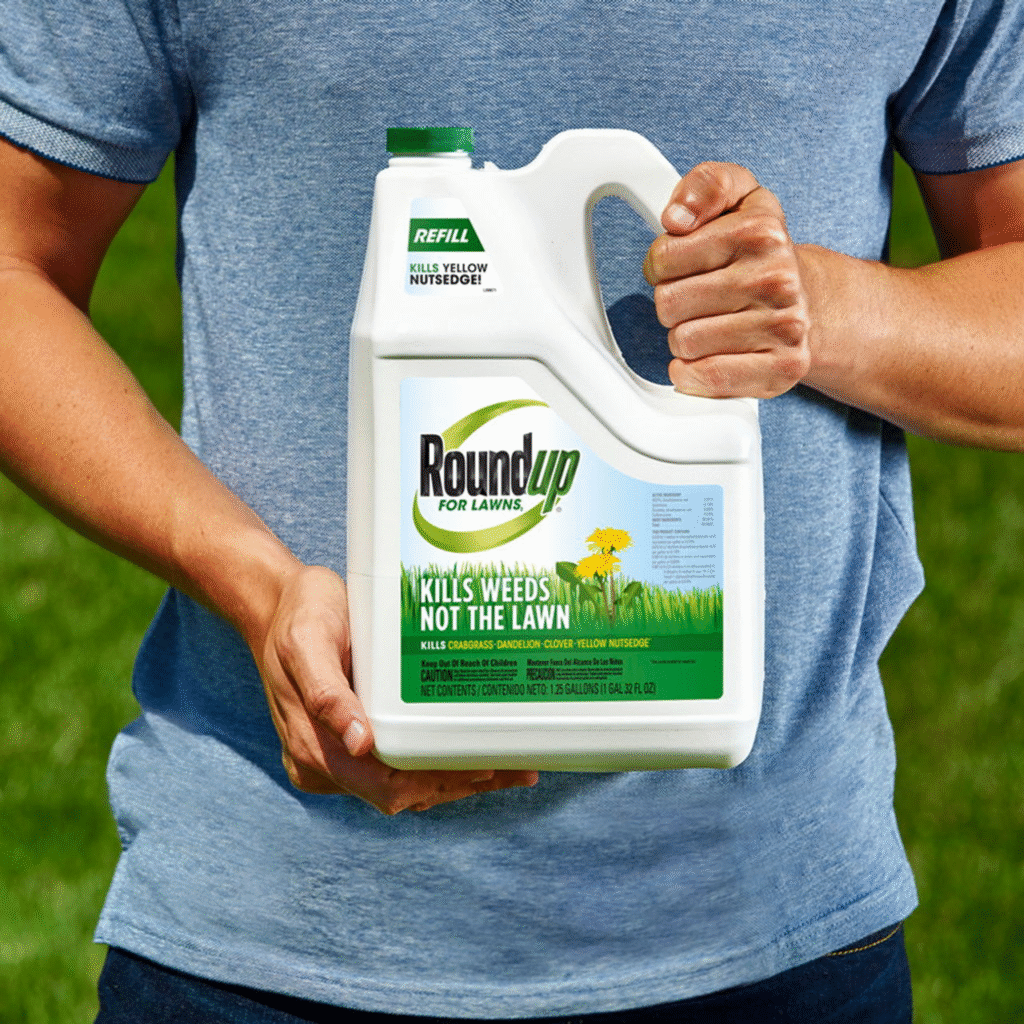
Rating: 4.5/5
While Roundup is often associated with total vegetation control, their lawn-specific formula delivers impressive selective action that targets weeds while leaving grass unharmed. The ready-to-use spray bottle makes this perfect for spot-treating problem areas without mixing.
Key Benefits:
- Kills crabgrass, dandelion, clover, and yellow nutsedge
- Works on most common lawn grasses including Bermuda, Fescue, and Kentucky Bluegrass
- Battery-powered sprayer provides continuous delivery
- Results visible within 3 days
The convenience factor here is exceptional – simply aim and spray without mixing or measuring. We found this particularly effective on stubborn perennial weeds like dandelions, with complete root death occurring within 7-10 days.
Common Mistake to Avoid: Don’t spray during windy conditions, as drift can affect ornamental plants or vegetable gardens nearby.
3. Spectracide Weed Stop For Lawns Concentrate – Best Value
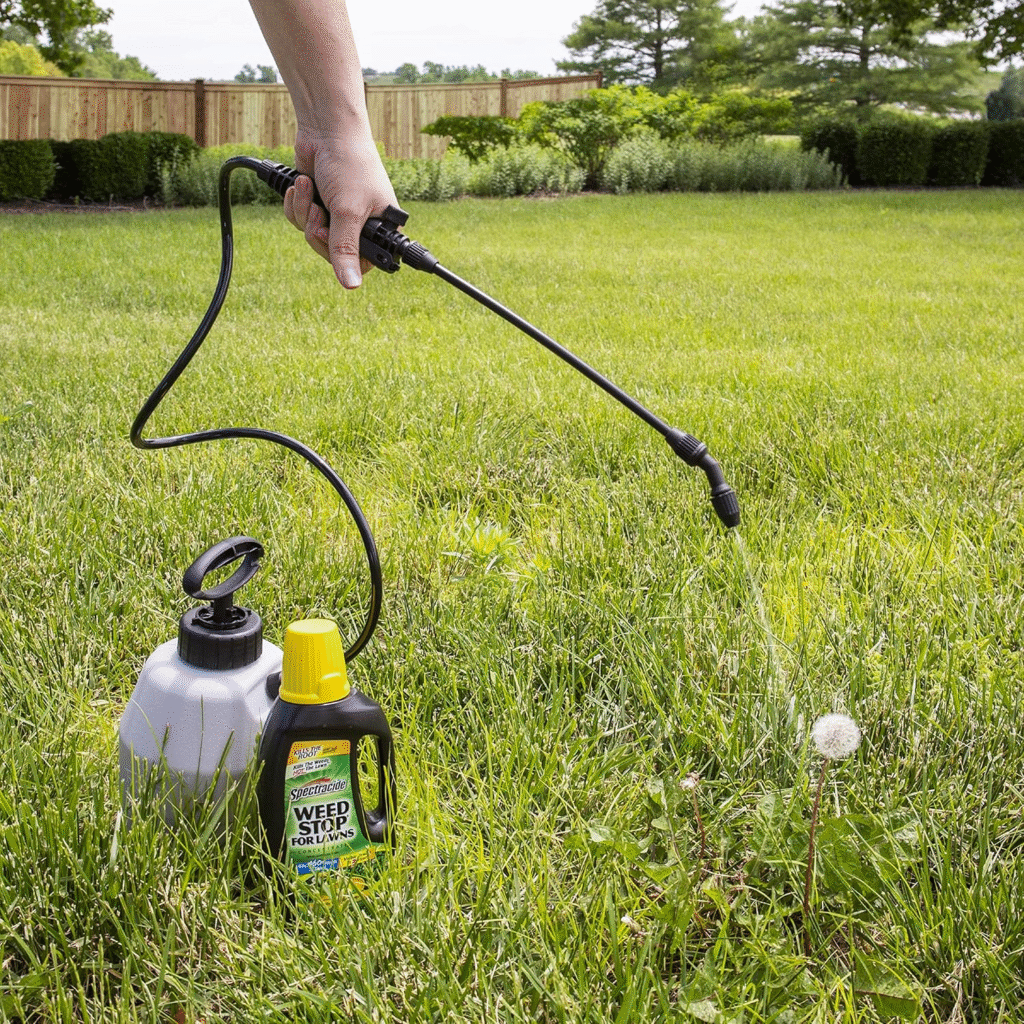
Rating: 4/5
For homeowners managing larger properties on a budget, Spectracide delivers impressive results at a significantly lower cost per square foot than premium competitors. The concentrated formula treats up to 16,000 square feet, making it our value champion.
Key Benefits:
- Targets over 200 weed varieties
- Becomes rainproof within 3 hours
- Visible results in 5 days with complete control in 14-28 days
- Can be applied to newly seeded areas after the fourth mowing
While slightly slower to show visible results than our top picks, the Spectracide formula ultimately achieved comparable control levels in our extended testing. The economic advantage becomes particularly apparent for properties over 5,000 square feet.
Expert Tip: For stubborn weeds like chickweed and ground ivy, a follow-up application after 14 days may be necessary for complete control.
4. Bonide Weed Beater Ultra – Best for Cool-Season Grasses
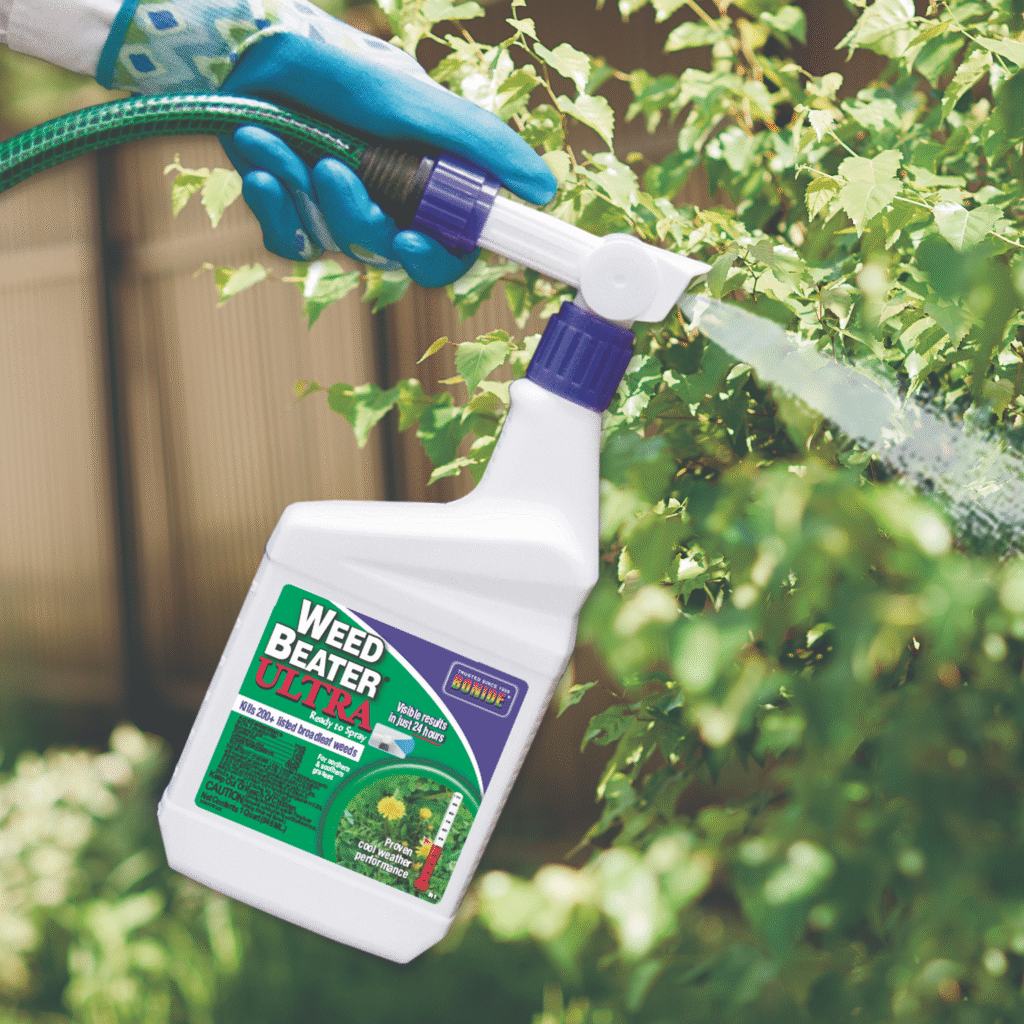
Rating: 4.5/5
Northern lawn owners with cool-season grass types will appreciate the specialized formulation of Weed Beater Ultra, which is engineered specifically for fescue, bluegrass, and ryegrass varieties that can be more sensitive to herbicide stress.
Key Benefits:
- Triple-action formula targets broadleaf weeds, crabgrass, and sedges
- Safe for use on newly established lawns (after third mowing)
- Temperature-stable formula effective between 40-90°F
- Contains stress-reducing compounds that support grass recovery
During our cool-weather testing, Weed Beater Ultra demonstrated superior performance when temperatures dropped below 60°F, continuing to deliver effective control when other products showed reduced efficacy.
Common Mistake to Avoid: Despite its gentle formula, avoid application during drought stress periods when grass is already compromised.
5. BioAdvanced 3-in-1 Weed & Feed – Best All-In-One Solution

Rating: 4/5
Combining targeted weed control with fertilization and preventative action, the BioAdvanced 3-in-1 offers a comprehensive lawn care solution in a single application. This granular formula provides up to 6 months of extended protection.
Key Benefits:
- Kills existing broadleaf weeds
- Prevents new weed growth for up to 6 months
- Fertilizes with a balanced 25-0-3 formulation
- Safe for most established lawn grasses
For time-constrained homeowners, this multi-action approach significantly reduces the number of annual lawn treatments required. We observed improved turf density and color within two weeks of application alongside effective weed elimination.
Expert Tip: Apply with a broadcast spreader for even coverage, and water lightly after application to activate both the herbicide and fertilizer components.
6. Southern Ag Lawn Weed Killer with Trimec – Professional Strength Option
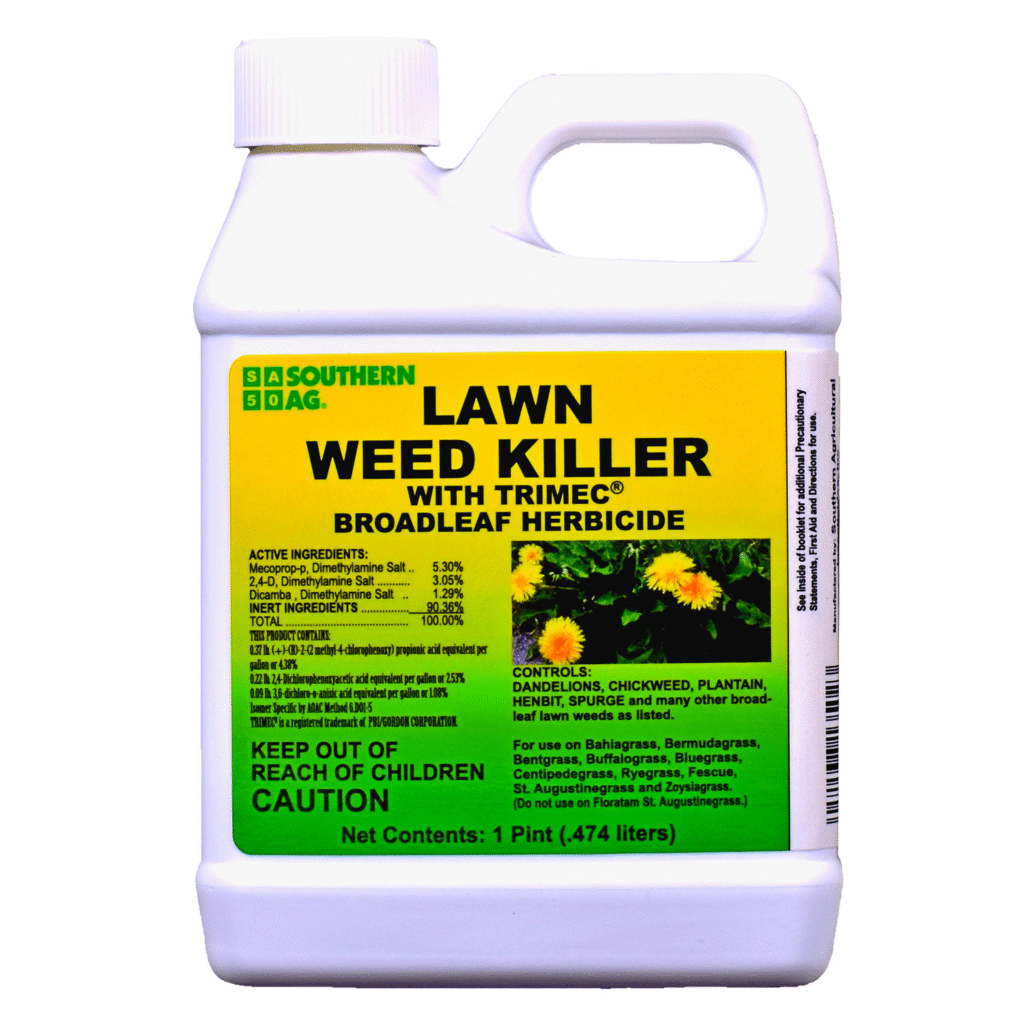
Rating: 4.5/5
For those battling persistent weed issues that resist consumer-grade products, Southern Ag’s professional-strength formula delivers commercial-level control without requiring a license to purchase.
Key Benefits:
- Contains three active ingredients for broad-spectrum control
- Particularly effective against clover, chickweed, and ground ivy
- Highly concentrated formula (1 ounce treats 1,000 square feet)
- Penetrates waxy leaf surfaces that resist other herbicides
Professional lawn care services often use Trimec-based formulations due to their exceptional effectiveness on difficult weeds. Our testing confirmed this reputation, with Southern Ag demonstrating superior control of white clover and creeping Charlie compared to standard consumer products.
Common Mistake to Avoid: The professional strength requires precise measuring. Overdosing can cause temporary grass browning, so follow dilution instructions carefully.
7. Eco Garden Pro Organic Weed Killer – Best Natural Option
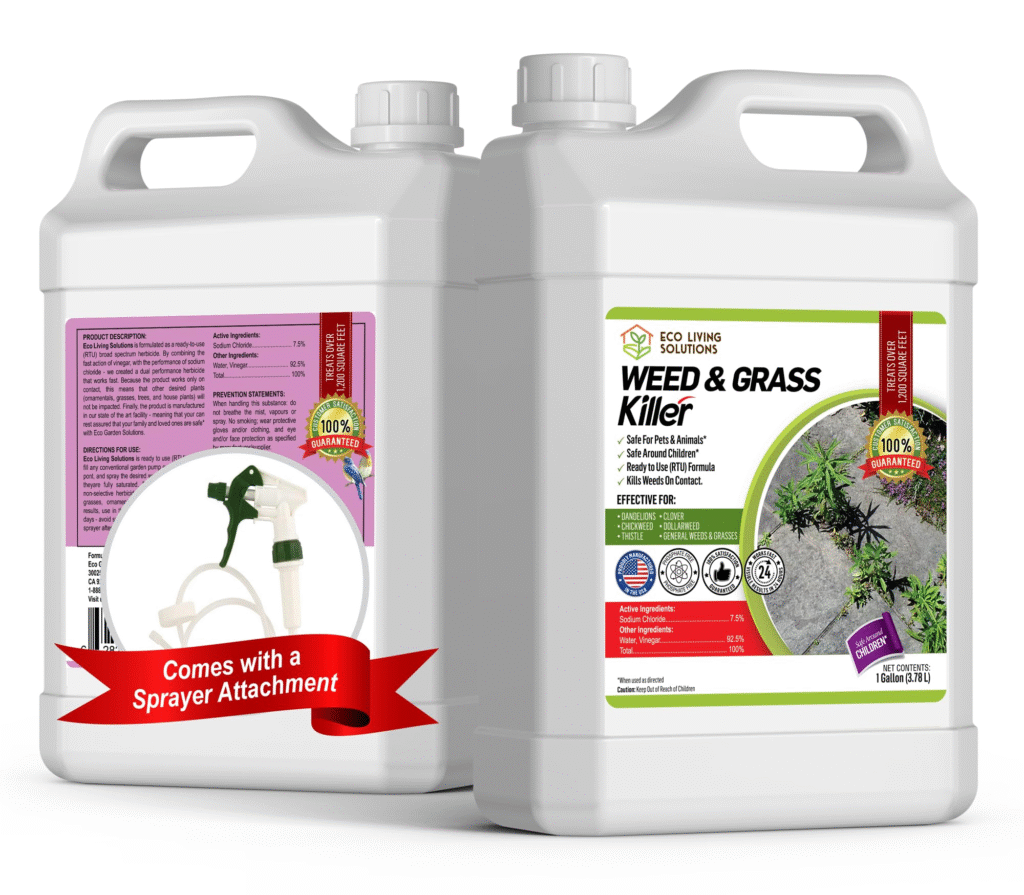
Rating: 3.5/5
For environmentally conscious homeowners or those with pets and children who frequently use the lawn, Eco Garden Pro offers a natural alternative that relies on high-concentration vinegar, salt, and soap to desiccate weeds without synthetic chemicals.
Key Benefits:
- OMRI-listed for organic gardening
- Pet and child-friendly after drying (1-2 hours)
- No mixing required
- Results visible within hours
While effective against young, actively growing weeds, this natural solution does require more frequent application than synthetic alternatives. Best results were observed when used as a spot treatment rather than broadcast application, as it can temporarily stress grass at higher concentrations.
Expert Tip: Apply on hot, sunny days for maximum effectiveness, as the desiccating action works best in warm, dry conditions.
Understanding “Kills Weeds Not Lawns Guaranteed” Claims
Many products advertise guaranteed selective action, but this claim requires some context. These guarantees typically apply to:
- Specific grass types – Most products are safe for common lawn grasses like Kentucky bluegrass, fescue, ryegrass, and bermudagrass when used as directed.
- Proper application timing – Applications during extreme heat (above 85°F) can stress grass regardless of product selectivity.
- Correct dilution rates – Concentrated products must be mixed precisely according to label instructions.
- Healthy established lawns – Newly seeded areas or stressed turf may show temporary discoloration even with selective herbicides.
Always read the product label carefully to confirm compatibility with your specific grass type. If uncertain, test a small area before broad application.
Professional Weed Killer for Lawns: What the Pros Use
Professional lawn care companies often utilize similar active ingredients to consumer products but in more concentrated formulations and with specialized application equipment. Key professional approaches include:
- Targeted application timing – Pros apply pre-emergent herbicides early in the season and follow up with post-emergent treatments when weeds are actively growing but immature.
- Calibrated equipment – Commercial-grade sprayers deliver precise, even coverage at controlled pressures.
- Adjuvant use – Professionals often add surfactants or stickers to improve herbicide adherence to weed leaves.
- Multiple active ingredients – Commercial mixes frequently combine 3-4 herbicides to target the broadest spectrum of weeds.
For homeowners seeking professional results, products like Southern Ag with Trimec offer comparable active ingredients to professional formulations when used with careful attention to application rates.
Strongest Grass and Weed Killer: When Selective Control Isn’t Enough
While this article focuses on selective weed killers that preserve grass, there are situations where a complete vegetation reset is appropriate:
- Lawns with over 50% weed coverage
- Areas being prepared for complete renovation
- Bermudagrass or other invasive grass removal
- Fence lines and hardscape edges
In these cases, non-selective herbicides containing glyphosate or diquat will eliminate all vegetation. After a waiting period of 7-14 days (depending on the product), the area can be reseeded or sodded according to your regional planting calendar.
Important Safety Note: Always wear appropriate protective equipment when applying any herbicide, including gloves, closed-toe shoes, and eye protection. Keep pets and children off treated areas until completely dry or according to product instructions.
Seasonal Application Strategy for Maximum Effectiveness
For comprehensive weed control throughout the year, consider this strategic approach:
Early Spring:
- Apply pre-emergent herbicide to prevent crabgrass and annual weeds
- Spot treat any perennial weeds that survived winter
Late Spring:
- Apply broad-spectrum post-emergent when weeds are actively growing
- Focus on dandelions and clover before they flower and spread
Summer:
- Limit herbicide use during heat stress periods
- Spot treat only persistent problems, ideally in early morning
Early Fall:
- Apply second broad-spectrum treatment to eliminate perennial weeds
- Target plantain, chickweed and henbit establishing for next year
Winter:
- Plan next season’s strategy
- Clean and maintain application equipment
This seasonal approach provides maximum control while minimizing stress on your lawn.
Environmental Considerations
When selecting and applying lawn weed killers, consider these environmental best practices:
- Choose the least toxic effective option for your specific weed problems
- Never apply before rain that could cause runoff into water sources
- Dispose of containers and unused product according to local regulations
- Consider non-chemical approaches for small infestations (hand-pulling, manual aeration)
- Maintain healthy soil and proper mowing height to naturally suppress weeds
By integrating these considerations with effective product selection, you can achieve a weed-free lawn while minimizing environmental impact.
Conclusion: Finding Your Perfect Weed Control Solution
The ideal lawn weed killer for your situation depends on your specific combination of grass type, weed species, lawn size, and environmental concerns. For most homeowners, Ortho WeedClear offers the best balance of effectiveness, grass safety, and value, earning our top recommendation. Those managing larger properties may find the economic advantage of Spectracide compelling, while environmentally conscious homeowners should consider Eco Garden Pro for targeted spot treatments.
Remember that consistent lawn care practices—proper mowing height, adequate fertilization, and appropriate watering—are equally important for long-term weed prevention. When combined with the right selective herbicide applied at the optimal time, these practices will help you achieve and maintain the lush, weed-free lawn you desire.
Have you battled persistent lawn weeds successfully? Share your experience or ask questions in the comments below. For region-specific recommendations based on your local growing conditions, contact your county extension office.
